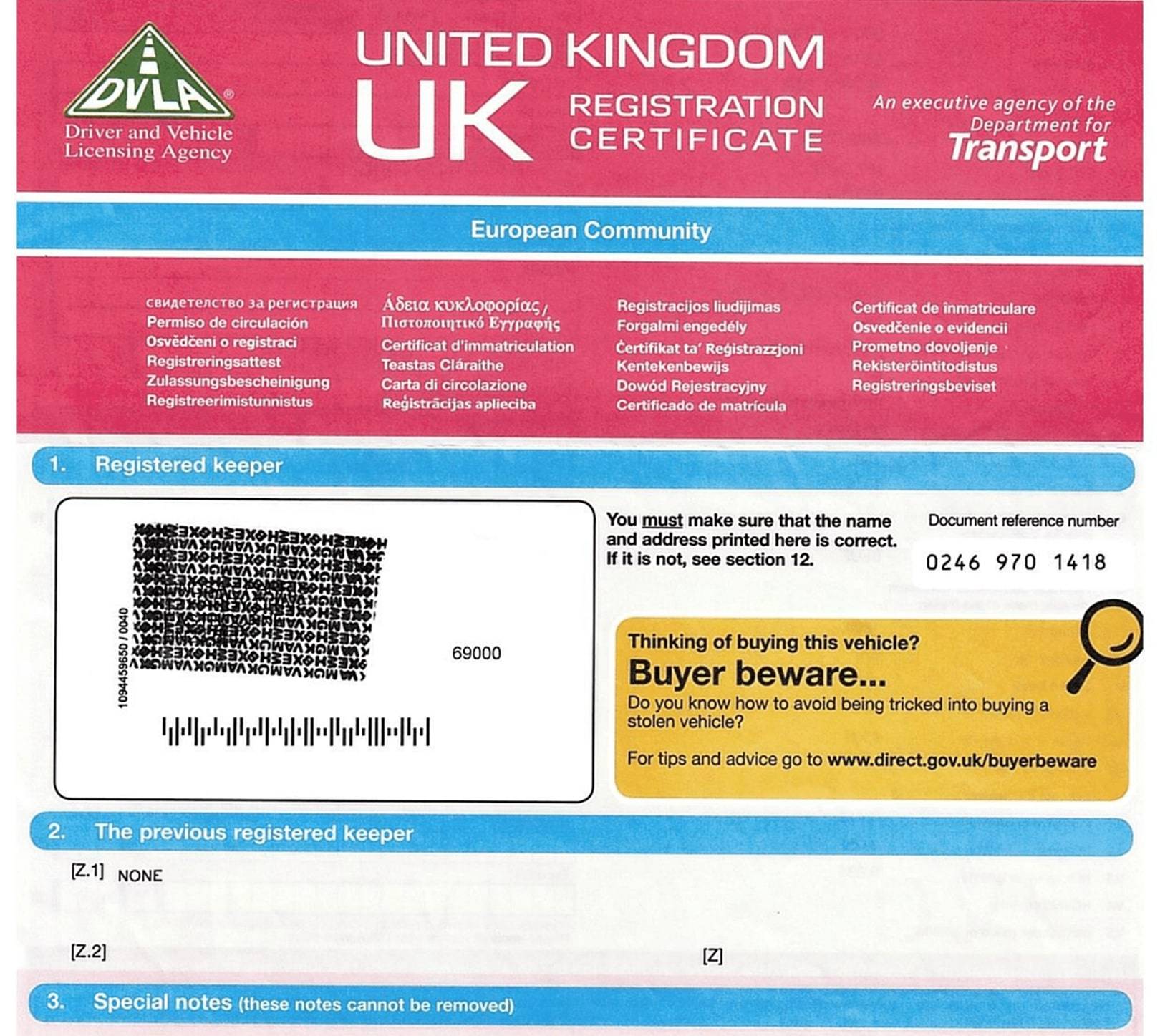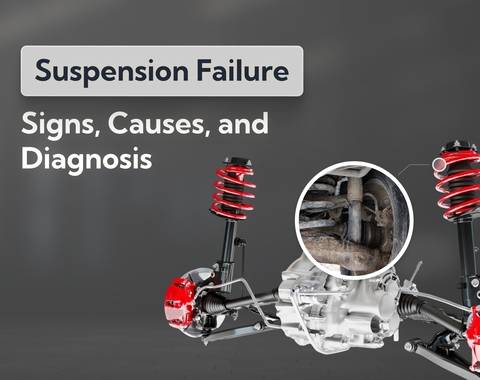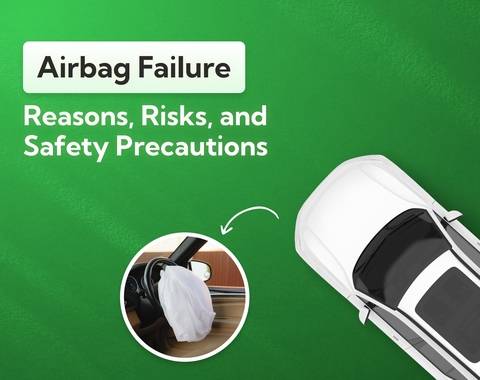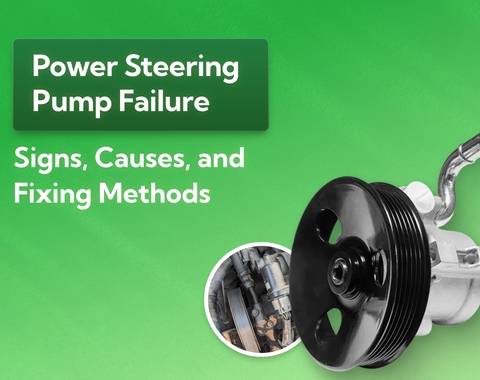What Paperwork Do I Need to Sell a Car in the UK?
Selling a car is fairly straightforward as long as you have the right paperwork. Learn the 12 documents you need to have on-hand before you sell your car.
Last updated: 18th November, 2025

Award-winning CEO driving growth and social impact across automotive, recycling, and technology-led enterprise platforms.

Listen to this story
Selling your car is a fairly straightforward process, but it sure helps to prepare your paperwork ahead of time. If you're wondering, "What documents do I need to sell my car?", this article will tell you all you need to know.
If you haven't been able to keep track of all those papers that come with your car, we don't blame you.
When most people get the hard part out of the way (finding a buyer, negotiating on a price) they often realise they jumped the gun when they can't find their paperwork.
These days, there's a good chance some of your documentation is digital. Still, we recommend keeping all your car-related paperwork in one place, just to make things simpler. Keeping physical copies together in a safe place ensures a smooth sale.
If you're planning to sell your car or have a deal in the works, let's get you organised.
What's in this article
12 Essential Documents to Sell a Car in the UK
Whether you've arranged to sell your car online, sell it privately, or carry out the process through a trusted dealership, there are 12 documents you need in order before you transfer ownership.
V5C Logbook
Your V5C logbook (also called your vehicle's logbook or registration certificate) shows who the official registrant (owner) of the vehicle is. The DVLA issues your V5C — it acts as proof of ownership and evidence that your vehicle is registered in the UK.
Since the V5C indicates who owns a vehicle, it is the most important document in the selling process. During ownership transfer, you will record the buyer's details using this logbook.
How exactly you use the V5C in your transfer varies depending on how you choose to sell your car.
- Selling your car privately: Fill out sections 2 and 6. After the sale, send your V5C to the DVLA as soon as possible. Unless you notify the DVLA personally, you will still be responsible for tickets and fines the new owner may incur.
- Selling your car to a dealer: Fill out section 4. Many dealers will take the entire V5C and send it to the DVLA on your behalf.
Most find it easier to complete this process online. If you take the online route, your buyer will receive their new V5C through the post.
Yes, it is possible to sell your car without a V5C. But we advise against it because:
- Potential buyers may be put off or not trust you.
- It complicates the process.
- You won’t have any immediate proof that you sold your car, which could lead to problems with the DVLA in the short term.
- Your buyer will have a hard time taxing it, and will they won’t be able to find car insurance in most cases.
If you lost your V5C, we strongly recommend applying for a duplicate logbook online before carrying out your sale.

Four Receipts
When you sell your car privately, it's unlikely your buyer will have the funds right then and there.
They'll probably look at your car first. Then, they'll go home, get their finances in order and come back with the rest.
In the meantime, most sellers have their buyer place a deposit (typically around 10%) to ensure they'll return and make the full payment. When they place a deposit, you will issue them a receipt.
Keeping a paper trail makes it easier for you to prove that the sale happened and it adds a layer of security for your buyer. Keeping the deposit without delivering the car is a common car selling scam. When everyone has a receipt, it eliminates any doubts or worries.
Your receipt should include the following details:
- Full name of the seller
- Full name of the buyer
- Vehicle make and model
- VIN and registration numbers
- Deposit amount
- Payment type (cash, cheque, card, bank transfer)
- Date paid
- Receipt number
- Additional terms and conditions (e.g., buyer agrees to purchase the vehicle within X days)
- Signatures from the buyer and seller
When your buyer returns to make the balance payment, you'll give them another receipt. This time, it should include full details of the final transaction (the total less the deposit).
Each transaction involves two receipts — one for you, one for your buyer. In total, your sale will involve four receipts.
Service History
Your garage will stamp your service history booklet each time you bring your car in for maintenance. Your booklet will also detail the types of service carried out and your vehicle's mileage at the time.
Your service history is a huge selling point when selling a used car. It's proof you took proper care of it and kept up with its servicing schedule.
Most keep their service history booklet in their glove box. If you can't find yours (or it's empty), you can still prove your service history with time stamped receipts.
MOT Certificates
An MOT is an annual test that assesses a car's roadworthiness based on factors like its brakes, tyres, and emissions. By law, any vehicle more than three years old must have a valid MOT certificate.
Although it isn't a substitute for regular maintenance (nor is it a guarantee of roadworthiness for the whole year), all of your prospective buyers will want to see it because it's a legal requirement.
They will also want to see your car's MOT history and check if it has any outstanding advisories.
To find your car's MOT history, you'll need the vehicle's VIN or registration number. You can access this information here.
Your entire MOT history (since 2006) is available online for free, so physical copies of your certificates are more of a "nice to have". You can sell your car without an MOT as long as you can demonstrate your vehicle had one in the past 12 months. However, it is illegal to sell an unroadworthy vehicle if the buyer is unaware of this.
What the experts say

Anthony Sharkey
Insurance Policy
When preparing your car for sale, you will have to contact your insurer to cancel your policy. It's best to maintain insurance and road tax right up until the sale is complete.
Your insurance policy isn't a legal requirement for selling a car in the UK but having this paperwork makes things easier (for you and your buyer) and shows them it's a legitimate sale.
Parts Receipts
Every time you take your car to a garage for repair or modification, you'll get a receipt. Since they underscore the true value of your car, parts receipts play a critical role in the sales negotiation process.
When you sell your vehicle, they provide an additional level of proof that:
- you properly maintained your car.
- any problems it may have now weren't caused by damage you inflicted on it yourself.
- you took steps to repair it.
- the parts you installed are genuine.
- you enlisted the help of a high-quality garage.
Some buyers will also want to know if any major parts have been replaced or repaired in the past (e.g., from an accident or modification).
If you're selling a modified car, you can justify a higher price by showing potential buyers the value of your aftermarket parts. If you were in an accident or are selling a damaged car, a copy of your receipts will help your buyer understand what you fixed, what you didn't, and your accident history.
Proof of Reservation and Purchase
Some dealerships and websites require you to bring your proof of purchase when trading in or selling your car. This goes hand-in-hand with policies stating you must have owned the car for a certain amount of time or purchased it from a particular source. For example, some dealerships won't list cars purchased within the last six months or through a private seller.
If you're selling a car on finance, your proof of purchase will also verify you settled your outstanding debt before the sale (a requirement according to UK law).
When carrying out the sale, you will also need to provide your buyer with a proof of purchase for confirmation (as mentioned above). This should include the names and addresses of both you and your buyer, the details of the car, the date, the sale price and a signature from each of you.
Car Warranty
If your car is still under warranty, you will need to inform the provider of the vehicle's sale. Usually, the provider can transfer it over to the new owner (in which case, your car just went up in value!).
If the warranty is transferable, it's up to you to provide the new owner with the details and documentation. Get in touch with your warranty provider and ask them to send you a letter of transfer. It should include confirmation that the warranty is valid, its duration, and other important information.
Number Plate Retention Form V317 (if Applicable)
Vehicle owners with private number plates they intend to keep for their next car will need to fill out a V317 form. This is your official application for number plate retention, and you can download it from the gov.uk website.
When it comes to keeping your plate, you have two options:
- Applying to transfer it directly to another car (if you already bought a new one)
- Keeping it on a 10-year retention document
In both cases, all you have to do is fill the form out and send it to the DVLA.
Car Owner's Handbook
If you're like most people, your owner's handbook is tucked away in your glovebox and forgotten about. Believe it or not, it's actually one of the most important documents when selling a car.
Your handbook is full of valuable information about your vehicle's features, technical specifications, maintenance instructions, and more.
Having it on-hand during negotiations can help you confidently answer any questions buyers might have. If you lost yours, most carmakers offer digital versions of the handbook on their official websites.
Your Driving Licence
Most dealers and online sellers require an original photo ID. Most people present their driving licence, but a passport may also suffice. With your licence, the can verify your identity in order to confirm that you're the rightful owner of the car.
A Bank Statement
A bank statement is a further identifier and proof of address. Buyers ask for this because it's the fastest, most efficient way to check whether you live at your stated address. When selling a car, you should cover your sensitive information and only share the last four digits of your bank account.
Wrapping Up
Selling a van, truck, or car in the UK is a fairly straightforward process, but having the right documents beforehand makes it go much smoother. Even though some are available online, it still helps to keep everything organised and on-hand.
Throughout the process, transparency will be your best friend. With the right paperwork, your buyers will have everything they need to know to make an educated purchase decision. (###)
Frequently asked questions
UK law states that sellers have individual responsibilities when selling a vehicle.
It is a criminal offence to sell a car without declaring any known faults or damage. If you want to sell your non-runner car or salvage car, you're better off selling it for scrap.
The law also requires those who sell their car to notify the DVLA of the change in ownership — otherwise, they will be liable for any fines or penalties associated with the car's future use.
If a potential buyer wants to test drive a vehicle, it is the seller's responsibility to ensure they are legally allowed to do so. Sellers must check the prospective buyer's driving licence and verify they have Driving Other Cars (DOC) cover.
An up-to-date MOT certificate is a requirement at all times. If the seller's vehicle does not have a valid MOT certificate at the point of sale, the buyer cannot drive it away.
After you notify the DVLA of your transfer of vehicle ownership online or via post, they will send a letter to the address on your V5C that confirms you are no longer responsible for the car. If you don't receive your confirmation within one month, you should contact the DVLA directly as you may still be liable for it.
It is possible to sell a car you do not own outright under very few conditions. If you are the executor of an estate, you have financial power of attorney, or you are a court-appointed receiver, you can legally sell a vehicle that is not registered in your name.
You can also sell a car in someone else's name if you obtain confirmation of intentions from the registered individual, who can allow you to make a sale on their behalf.
The Motor Ombudsman is a fully-impartial industry-funded body that provides dispute resolution services for car customers and businesses. The organisation self-regulates the automotive industry using CTSI approved Codes of Practice.
Your V5C logbook is the fastest and easiest way to prove you are the legal owner of a vehicle in the UK. It contains all necessary information (including your name and address and details about the car). It is also considered valid proof of ownership when making an insurance claim.
You cannot legally own a car in the UK without an address. Your V5C logbook needs to contain your current address in order to be valid. Without a physical proof of residency, you won't be able to register any vehicle or find an insurance provider.
The easiest way to prepare a receipt for a car sale in the UK is to use an online template. Whether you prepare one on your own or using a templated document, it should include the vehicle's make and model, the buyer's name and address, the agreed-upon selling price, applicable taxes, date of purchase, payment method used, and signatures from each party.
If you are the owner or registered keeper, all you need to do to authorise a third party to sell a vehicle on your behalf is a signed letter of authority. You will also need to provide them a copy of your driving licence, which they will use to verify your signature.
If your car doesn't have a valid MOT certificate, it is illegal for the buyer to drive it away. It is also illegal to sell an unroadworthy vehicle without the buyer's knowledge. For these reasons, it is against your best interest to sell a vehicle before renewing its MOT certificate.
You need to notify the DVLA as soon as you sell your car. You can do this either by post or online, but must include the new owner's details and confirmation of the sale. Failing to notify the DVLA means you will be held liable for future fines and penalties associated with the car. It also means you won't be able to reclaim any outstanding road tax money.
There is no specific paperwork required for you to sell a car on finance, but UK law requires you to arrange to settle your outstanding debt with your lender before any transfer of ownership can take place. Depending on your lender, this procedure will vary.
Some third-party sellers and dealerships will offer a warranty or guarantee when selling a used car, but this isn't required by law. There may also be an implied warranty, but it is ultimately the buyer's responsibility to buy a car in a satisfactory condition. Most of the time, private sellers won't be able to offer this type of protection.
About Car.co.uk

Share on
Latest news & blogs










